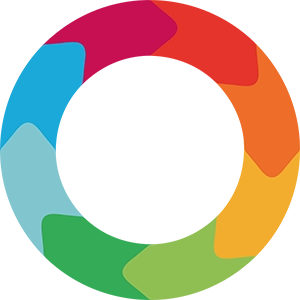Located in Melbourne, Australia, Carey Baptist Grammar School is a large, independent, co-educational college for students from Early Learning (3yrs) to Year 12. The school is forward thinking, and the culture is one of excellence and a commitment to building students with strong character. The students at Carey are encouraged to discover and develop a strong sense of their life purpose through experiences that are offered by the co-curricular opportunities and the innovative curriculum and learning programs provided. Some of these offerings include camps and excursions, musical productions, student leadership, special interest groups, house system, lunchtime clubs, Chapel Services and assemblies, a transdisciplinary program at year 9 (Year of C- Change) and also one that has a personal development and service learning focus at year 10. (The Zero Program).
I was a classroom teacher as well as a Careers Practitioner this year in my role at the school. I had previously used Skillbuilder in my prior school, and wanted to see if I could embed it in my own classroom in order to measure ‘affective’ learning skills in students, in a way that was explicit, and demonstrated rigour and was clear to parents and students alike. We were currently measuring the traditional cognitive skills such as remembering knowledge. Other than anecdotal evidence shared between teachers of what 21st Century Skills we had seen students developing in our classroom lessons, we didn’t have a common language or have consistency between classes. With support from our Skills Builder Educational Support Representative Vicky, we were able to adapt an assessment rubric for a year 8 lesson to instead focus on assessing essential skills developed in the unit of work. After this, teachers began to see other ways we could audit units of work and show students when they were using and building on the essential skills.

In Religious Education students’ pre and post understanding of the essential skills has been tracked and measured using the HUB platform.
Students have also periodically completed an essential skill record on one focus skill (e.g. Problem Solving) at the end of a subject unit and piece of summative assessment work.
As already mentioned, at this school, in year 10, our students undertake the Morrisby Profile, and they also take part in a week of work experience. They use a reflective log during work experience to help them notice the essential skills they are using every day that they work. The Morrisby Profile has the Skills Builder program built into the student tracking element of the software, and so at year 10 level, students and parents can see how they are developing regarding each of the essential skills.

In Year 8 RE, the unit of work was most suited to focusing on teaching the essential skill- Problem Solving. As the unit of work was introduced - this was listed as one of the Learning Outcomes for students to clearly connect, and as each lesson was delivered, the specific Problem Solving ‘step’ that was linked to this lesson’s content, was highlighted to the learners. Resources from the HUB such as short lessons were used to support the other RE teaching content. After the students completed their summative assessment, class then spent time on a class reflection, reviewing the strategies used to build their Problem Solving skills, and their personal progress. We used the language in Skills Builder in the assessment rubric, and this is what we reported on in student reports.
This project has had a positive impact on the students and we feel that it will continue to impact them positively in the future. When the students move on from year 8 and into their year 9 (C-Change) program, they will be required to work together to solve a real-world problem or improve an issue they have identified within the community. The students at our school also often work and volunteer with their local community and so they can begin to see how they can use these opportunities to apply and develop the essential skills outside of school.
In the future I would like to involve different subject teachers to update and reflect on students’ progress in developing soft skills. In year 10 Careers, students can be encouraged to include the activities they take part in outside of school and to create goals and action plans for further development on their employability skills.
So, while we are only at the beginning of the Skills Builder journey, at this particular school, I am thankful to have found a way to continue to measure these ‘elusive’ soft skills in my own classroom teaching.
In time, my hope is that students will be able to make greater connections between their learning, their possible careers and develop their executive function which ultimately benefits their literacy & numeracy outcomes.























